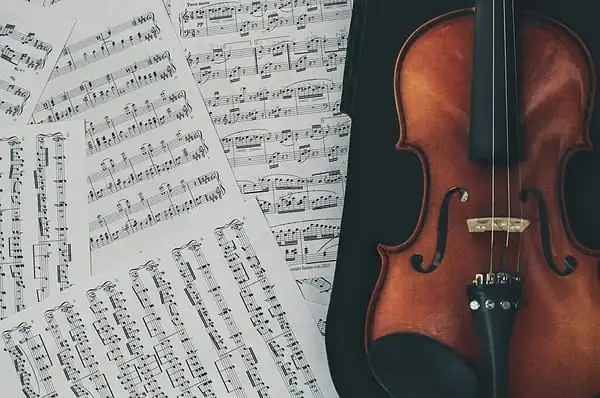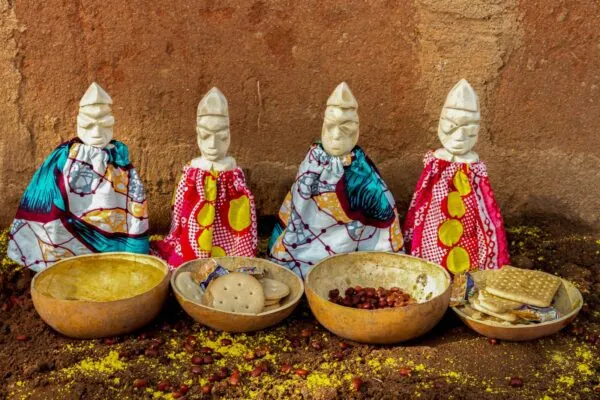Claude Dauphin has devoted his life to studying and documenting the rich musical heritage of Haiti.
As a musicologist and author of the book Histoire du style musical d’Haïti (History of the Musical Style of Haiti), Dauphin provides deep insight into the development of Haitian music across many genres.

This blog post summarizes key points from a recent Haiti Inter interview with Dauphin, highlighting the diversity of influences that shape the sound of Haiti.
Tracing the Evolution of Haitian Classical Music
Dauphin explains that in the 1970s as a music student in Montreal, he founded a society to perform classical works by Haitian composers.
This initiative was encouraged by two mentors, conductor Robert Durand and dramaturge Franck Fouché, who lamented that such music had been forgotten.
Dauphin’s research began by analyzing pieces by seminal composers like Justin Elie and Ludovic Lamotte to uncover their influences.
He discovered they frequently incorporated rhythmic motifs from Haitian folk melodies as a unifying national signature.

For instance, Durand’s String Quartet No. 1 features a meringue dance as the third movement. Dauphin emphasizes these composers were conversant in European forms like symphonies and chamber music, yet blended in homegrown elements.
While studying manuscripts, Dauphin encountered the name Edmond Saint-Ange as another important forebear.
After obtaining Saint-Ange’s extensive catalog of compositions, Dauphin recognized him as a key forerunner of Haiti’s national school of music. Recently releasing Saint-Ange’s work on record has brought belated acknowledgment.
Vodou Ritual Music as a Vital Influence
In addition to classical music research, Dauphin conducted extensive ethnomusicology fieldwork in Haiti focused on ritual Vodou music. He argues this genre is crucial to understanding influences on other forms of Haitian music.
Vodou music preserves rhythms, melodies, and textures directly inherited from African spiritual practices. But it has remained largely unknown due to cultural misunderstandings. By analyzing elements like songs, drumming, and ceremonies, Dauphin shed light on this underappreciated facet of Haiti’s heritage.

In particular, he uncovered how classically trained composers incorporated Vodou musical ideas. The title of composer Carmen Brouard’s piano Sonata Vaudouesque (“Vodou Sonata”) itself demonstrates this link. Dauphin believes the “soul of Haiti” can be heard in such mixtures of European instrumentation with African-descended religious themes.
The Rise of Haitian Dance Music
According to Dauphin’s historical research, the meringue style was played throughout Haiti in the countryside before the popularization of compas music. Dance bands modeled their sound on this folk genre.
Nemours Jean-Baptiste is often credited as the founder of compas. But Dauphin notes musicians like Jean-Baptiste were likely drawing inspiration from longstanding méringue dance tunes.
They then integrated new techniques like complex percussion parts and brass arrangements influenced by Cuban groups.

Dauphin emphasizes that compas grew dominant partly through shrewd marketing and packaging. But no single genre wholly defines Haitian music.
Each category has its own niche, status, and space in the culture. He strives to find connections between them, not make problematic qualitative judgments.
Issues of Class, Gender, and Censorship
Throughout his career, Dauphin has aimed to make Haitian music accessible beyond exclusive circles. He discusses barriers that have separated classical artists from the masses.
Poverty and lack of music education mean many Haitians are unaware of this aspect of their heritage. Dauphin has worked to change that through lectures, program notes, and publications.
He also addresses provocative lyrical content in popular songs that objectify women. Dauphin analyzes such machismo as an outgrowth of deeper taboos around sexuality and death.
By studying related practices like Vodou, he finds religious justifications for discussing these themes. Though harsh or bawdy, Dauphin sees merit in airing such thorny subjects rather than suppressing them.

Continuing a Lifelong Quest
In his seventh decade, Claude Dauphin sustains his indefatigable efforts to document Haiti’s music. Current projects include preparing a new edition of an out-of-print 1919 analytical text on early composers.
He continues conferring with scholars and musicians in Haiti to encourage appreciation for the country’s diverse artistic heritage.
After decades of study, Dauphin conveys profound knowledge yet an unflagging desire to keep learning. As he modestly attests, no single book could capture a culture’s musical “soul.”
There is always more ground to cover in understanding Haiti’s multilayered sonic influences. But Dauphin’s eloquent insights provide an enlightening overview of this evolution. His work remains culturally invaluable as both a reference and an inspiration.



